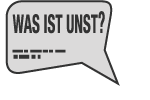“From strength to strength” – a look back at 2018, and ahead to 2019
“From strength to strength”: 100 Days of NTGent
It was no doubt the most closely internationally observed launch of the season: from Libération to the New York Times, from the NZZ to the Süddeutsche Zeitung, critics travelled to Ghent for a first-hand look at Rau’s “plans for European theatre” (Financial Times) and to view his first two plays, “The Repetition” and “Ghent Altarpiece”.
After the first half of the season, their reviews are euphoric: “Milo Rau went from strength to strength in 2018”, the New York Times wrote. It named “The Repetition”, the first play to be staged in 2018 under the “Ghent Manifesto”, one of the ten best productions of the year. Numerous critics’ polls in six countries echoed the New York Times: “The Repetition” made the best–lists of over a dozen critics, from the USA to Germany and Italy to France. The best compliment was probably that paid by Le Temps of Geneva, which in its year-end review said: “For many, it was the play of the year, for some, the play of their lives.”
Milo Rau retrospective in Amsterdam
“No other director in Flanders and Europe generated such heated debate and controversy in 2018 as Milo Rau,” wrote De Tijd last week in its annual year-end interview. While Belgian television is completing a film on the background to “Ghent Altarpiece” and the Dutch trade journal De Theaterkrankt is publishing a critical interim report on the “City Theatre of the Future”, the Dutch-speaking world’s first retrospective of Rau’s theatrical work is set to appear this month: in its Brandhaarden Festival, the International Theater Amsterdam (ITA) is focusing exclusively on the Swiss artist’s work.
After devoting last year’s festival to the exceptional English director Peter Brook, the ITA is dedicating this year’s edition to Rau’s “Theatre of the Real”: from 24 January, the long-standing Amsterdam theatre will show “Ghent Altarpiece”, “Lenin”, “120 Days of Sodom”, “Empire”, “The Repetition” and “Five Easy Pieces”, among other plays.
“Orestes in Mosul”, “The New Gospel” and “Family”: three new projects for 2019
“Is Milo Rau Really the Most Controversial Director in Theater?”, asked the New York Times at the opening of the Ghent season. “Ghent Altarpiece”, dubbed a “monument of humanity” by the Belgian cultural radio Klara and selected for first place on the broadcaster’s annual best-list, made an almost “old-masterly” impression on many critics (RTBF). For 2019, Rau has taken on two more classics of the European tradition: the Oresteia and the Bible. The preparations for the filming of the Gospel in the vicinity of the Southern Italian city of Matera (working title: “The New Gospel”) begin this week. “In our adaptation of the Gospel, all roles are to be played by the losers of today’s world economy: the Southern Italian farmers who went bankrupt because of grain imports and the refugees from Africa stranded in Italy”, writes the director in the Tagesanzeiger. The film’s public scenes – the Passion of Christ up to the crucifixion – will be shot in September in and around Matera, this year’s European Capital of Culture. The cinema release is scheduled for 2020.
Rau travelled to Mosul in November with dramaturge Stefan Bläske and actor Johan Leysen for their updating of the Oresteia with a team of European and Iraqi artists (working title: “Orestes in Mosul”). After a work phase in Ghent, rehearsals will continue in March in the former stronghold of the Islamic State (to premiere on 17 April 2019). Reporting on the situation in Mosul, the Frankfurter Rundschau wrote: “When the work debuted in 458 B.C., Mosul had long been a cosmopolitan city. When Rau’s adaptation takes the stage, Mosul will still be a place of ruins.”
Parallel to these two international projects, Rau will conclude the cycle “Belgian Crimes” in 2019 with the production “Family”, which follows on “Five Easy Pieces” (2016) and “The Repetition” (2018). Like “Orestes in Mosul”, “Family” will be developed with actors from NTGent’s “global ensemble” and will premiere at the beginning of January 2020.
Art and political engagement: debates in January and February
In addition to the guest performances and new productions – “The Repetition” will be shown on four continents in 2019 – this year, too, will begin with various discussion events. How does a piece emerge, what does “global realism” mean, and how do political engagement and art go together? In January, Rau will offer insights into his current projects at the International Theater Amsterdam and at the Kaserne Basel. In February, he will take part in the “Woche der Kritik” (Week of Criticism) at the start of the Berlinale and discuss his work with Jakob Augstein (“Der Freitag”) at the Schauspiel Köln in “Unter vier Augen”.


